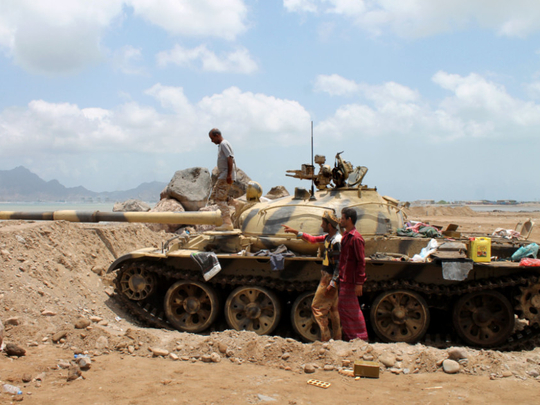
The Saudi-led military intervention in Yemen proved the Middle East to be a region where the escalation of a large-scale conflict can literally happen overnight. The region seems to tie itself into an intricate knot of tenuous relationships among the major players, with Saudi Arabia in a dominant position.
Yemen’s exiled President Abd Rabbuh Mansur Hadi had been planning for possible foreign intervention in Yemen since the country’s unrest started in January. However, being denied by the League of Arab States and the United Nations Security Council, he was finally heard by the Gulf Cooperation Council (GCC). All members of the GCC voted for the military intervention, except Oman — it remained neutral for safety reasons.
Hadi’s decision did not come as a shock to the Yemeni people, but the outcome of the Arab intervention remains uncertain.
Generally speaking, there are two possible ways of further escalating the conflict. In the first scenario, the conflict could develop on a local level, with the main focus being on gaining full control over Yemen. However, this would possibly lead Saudi efforts to break the position of Al Houthis and could further consolidate Al Qaida.
On the other hand, the course of the war could also grow to an international level and end up with a global operation aimed at the entire eradication of Al Houthis. However, this goal is unlikely to ever be achieved. According to Moufid Jaber, a Lebanon-based geopolitical researcher: “Yemen has always been a very difficult place to govern. For the Saudis, the best case scenario would be that the Al Houthis would be weakened and unable to control most of Yemen, as they have been able to accomplish until now, but Al Houthis will always retain a large amount of influence given their popularity amongst the Yemenis.”
Meanwhile, Iranian support of Shiite groups in Yemen is seen to be among the factors that caused the intervention in the first place. However, even though Iran has had no direct involvement in the crisis, some consider the situation in Yemen to be a solid ground for Iran’s attempt to expand its territory. According to Bayram Balci, a political commentator and scholar at Carnegie Endowment for International Peace: “The situation in Yemen is an opportunity for Iran to increase its influence in the region. The fact that there is a good move and context for Iran and its influence in the broad Middle East confirms this.”
— The reader is a Russian writer based in Moscow.








